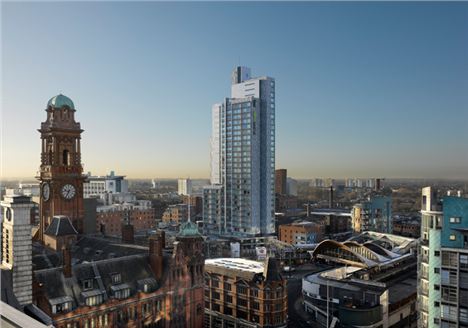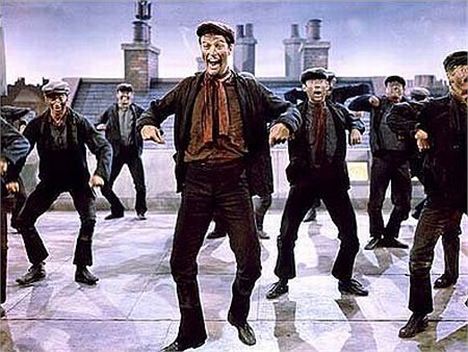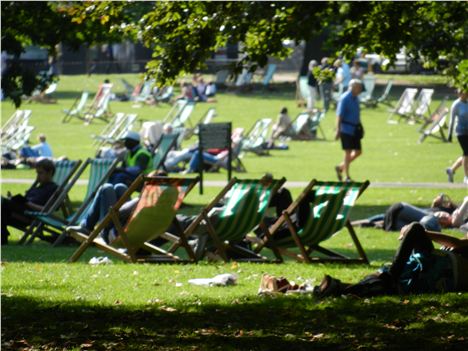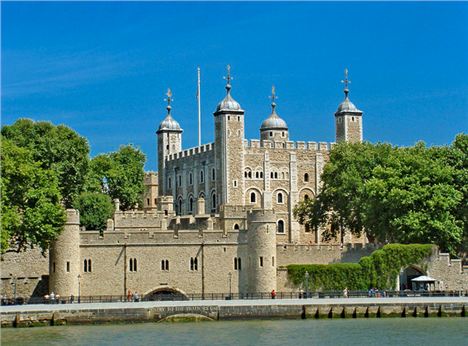THIS is my favourite ever quote about Manchester’s attitude to London. It comes from the early twentieth century when the disparity between northern cities and the property bubble economy of London wasn’t so exaggerated.
Confidential reckons that Manchester is right to have a more positive attitude to the capital than that of other Northern cities.
In his autobiography Little Wilson Big God, Anthony Burgess wrote:
‘In those days, for a Mancunian to visit London was an essay in condescension. London was a day behind Manchester in the arts, in commercial cunning, in economic philosophy. True it had the monarch and the government and was gratuitously big. When foreigners came to Manchester they came to learn, not to feed ravens and snap beefeaters. Sometimes they learned too well, but that was not Manchester’s fault. Manchester was generous and London was not. London had some of the quality of Chorlton-cum-Hardy.’
That last line is laugh out loud stuff given how Chorlton has Hoxtonified over the last decade.
Now the Centre for Cities, commissioned by YouGov, has conducted a survey into how people view the capital and its impact on the rest of the country.
Manchester bucks a northern trend with more than a fifth of those polled (21%) believing that London has a 'very positive' impact on the city and 42% thinking it has a 'fairly positive' impact. 18% felt London benefited its economy.
Manchester - twice as positive about London than Liverpool
Elsewhere in the North it was very different.
Fewer than one in 10 people in Liverpool, a skip down the M62, thought London has a positive impact on the city’s economy. Indeed, Liverpudlians are among the most disaffected in the UK - along with people in Hull, Sheffield and Glasgow - when it comes to their view of how the capital looks at the provinces.
24% nationally believed London has a positive effect on their local economies.
So why is Manchester different from its brother urban centres in the North?
“It could reflect the fact that Manchester has a long history of strong leadership and relationships with Whitehall and as a result has more powers, funding and flexibilities to grow and shape the city,” the report's authors say.
“Manchester’s recent City Deal and the continuous growth of its tram network, for example, demonstrate how city leaders have worked alongside government in London to drive change and support the economy in Manchester.”
It also pointed to the strong city region partnership Manchester has developed between ten local authorities as contributing to additional investment and growth.
The survey took place across sixteen major UK cities. The results have led Centre For Cities to call on the government to devolve more powers and freedoms to cities so that they can take on more prominent economic, political and cultural roles.
Some Cockneys enjoying the property boom
The joint project with Centre for London, supported by Lloyds Banking Group, found that contrary to David Cameron's assertion that “we are all in this together” the British public does not feel that the UK is a 'one nation economy'.
Back to the stats.
Across the UK, only 17% of people believe London civil servants and politicians are responsive to issues in their own city – in Manchester its 20% and in Liverpool 8%.
And despite the BBC's move to Salford, national coverage of news stories and cultural events tends to be regarded as London-centric. Ironically perhaps – but sensibly - even the report describes it as ‘Salford in Manchester’.
In Manchester 27% of the poll thought national coverage was 'very focussed' on London and 48% thought it 'fairly focussed' on London.
Confidential reckons that Manchester is right to have a more positive attitude to the capital than that of other Northern cities. It’s best to be mature about these things, get on with the reality and attempt to change it from within.
London parklife
One way of looking at this is by considering London so bloated, such an artificial bubble economy, that it exists as a separate country - although close enough for a lovely weekend away. In that case Burgess’s sangfroid above is the correct way to look at the relationship – with humour.
The other way to look at the Metropolitan Beast is with trepidation especially with regard to that Margaret Thatcher Frankenstein monster, The City of London and the 1986 Big Bang easing of stock market speculations. The latter is a grotesque leech on the British economy, a permanent imbalance.
When London's financial sector catches a chill it means the rest of us get pneumonia. If much of that grubby group in pin stripes were to go it might not be too bad a thing. Maybe we could concentrate on manufacturing a little bit more then.
You can follow Jonathan Schofield on Twitter here @JonathSchofield or connect via Google+















